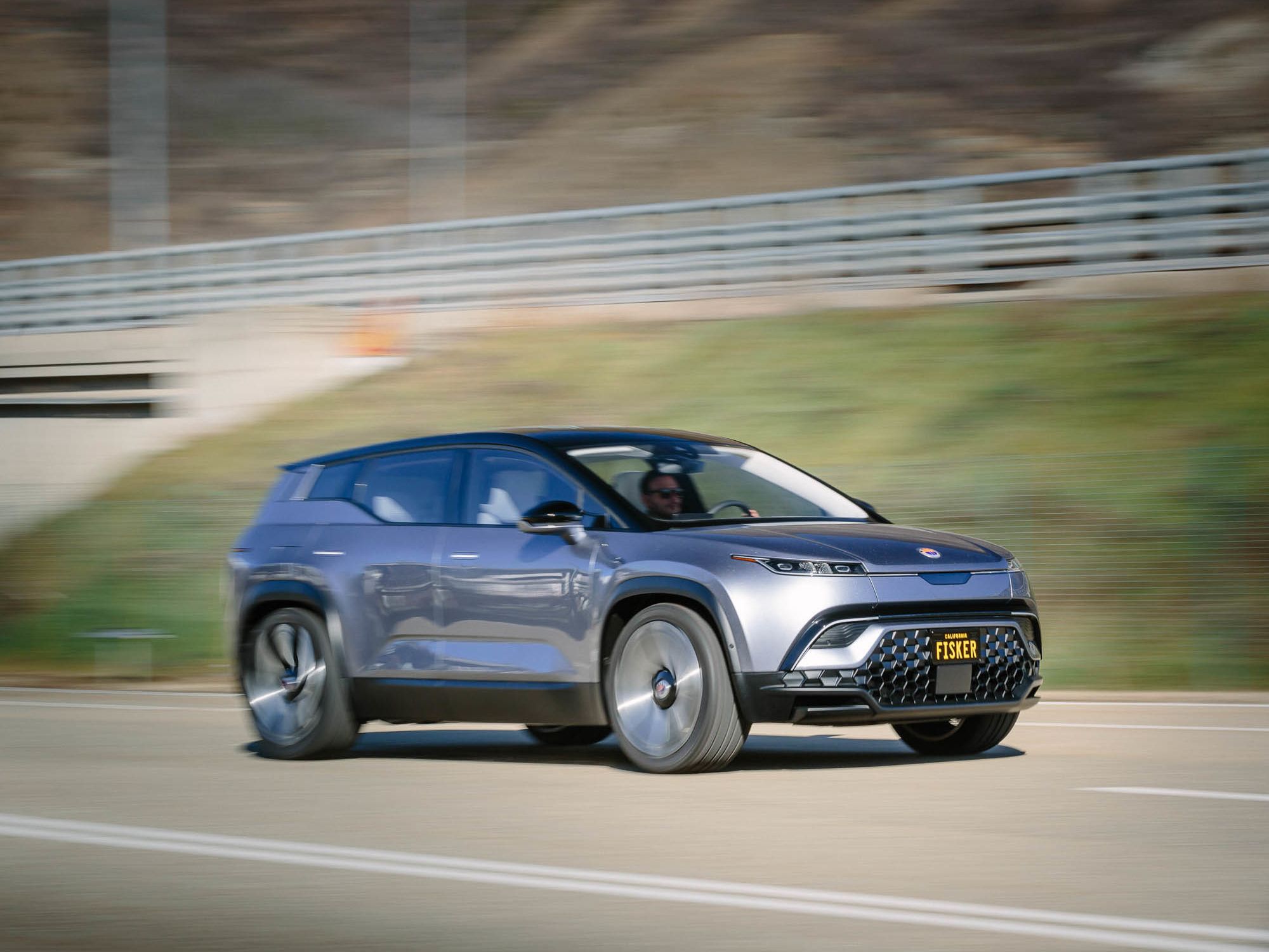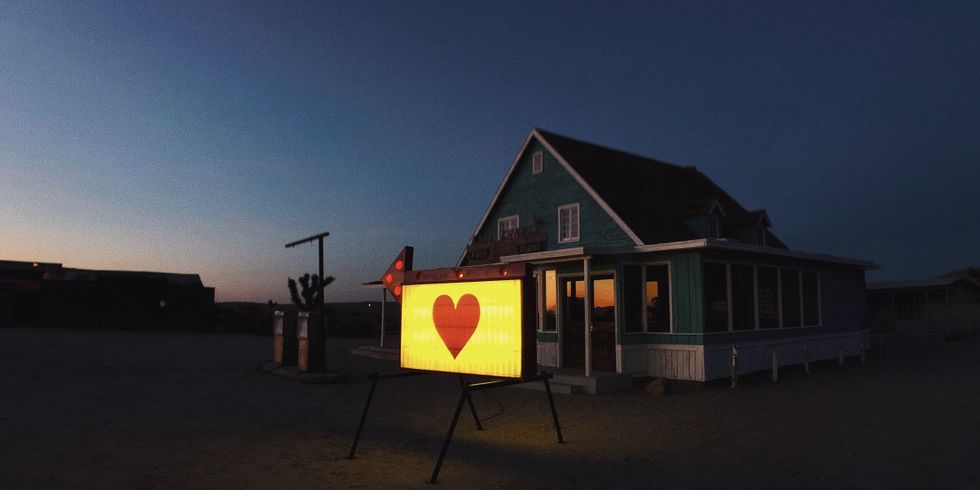LA Tech Updates: Fisker to Go Public; LA Bars, Gyms and Salons Go Dark Again; Apple Gives $400M to Stem Housing Crisis
Rachel Uranga is dot.LA's Managing Editor, News. She is a former Mexico-based market correspondent at Reuters and has worked for several Southern California news outlets, including the Los Angeles Business Journal and the Los Angeles Daily News. She has covered everything from IPOs to immigration. Uranga is a graduate of the Columbia School of Journalism and California State University Northridge. A Los Angeles native, she lives with her husband, son and their felines.

Here are the latest updates on news affecting Los Angeles' startup and tech communities. Sign up for our newsletter and follow dot.LA on Twitter for more.
Today:
- LA Bars, Gyms and Salons Go Dark Again
- Fisker set to go public with $2.9b valuation, EV SUV to roll out by 2022
- Apple Allocates $400M to Affordable Housing in California
Southern California Bars, Restaurants, Salons, Gyms, Places of Worship Must Shut Down Indoor Operations Amid Surge in COVID-19 Cases
 Image courtesy of Musso & Frank's
Image courtesy of Musso & Frank'sBars, gyms, places of worship, salons and offices for non-critical sectors will largely go dark again in Southern California. As coronavirus cases surge, Gov. Gavin Newsom announced a list of new statewide restrictions and targeted closures in 30 counties including Los Angeles.
Statewide, all bars, dine-in restaurants, wineries, movie theaters, museums, card rooms and entertainment centers must close indoor operations, Newsom said on Monday.
"This is a new statewide action effective today," he said.
In counties on the state's watch list, which include Los Angeles, Riverside, San Bernardino and Ventura counties, personal care services including salons and barbershops, along with indoor malls and fitness centers must close indoor operations.
Effective immediately, CA is closing some indoor business operations statewide and additional indoor business operations in counties on @CAPublicHealth Monitoring List for 3 consecutive days.
📍Find the updated list of counties here: https://t.co/snYe5v55Rw pic.twitter.com/W3wBJp2ap5
— Office of the Governor of California (@CAgovernor) July 13, 2020
Those on the watchlist are among the most populous parts of the state, containing about 80% of Californians.
Restaurants are still allowed to stay open for outdoor dining and takeout.
As of Monday, California had more than 329,000 cases and 7,040 deaths.
Fisker Set to Go Public with $2.9b Valuation, EV SUV to Roll Out by 2022

Electric car startup Fisker is set to go public through a merger that values the company at $2.9 billion and allows it to begin producing its first vehicle by 2022.
Los Angeles-based Fisker announced the deal with Spartan Energy Acquisition Corp, a special purpose acquisition company backed by private equity firm Apollo Global Management on Monday. It comes as investors look for the next Tesla Inc, which has seen soaring valuation in recent weeks.
The deal - expected to close by the end of the fourth quarter - will give Fisker more than $1 billion in gross proceeds to jumpstart production of Fisker Ocean, the vision of founder Henrik Fisker, CEO and chariman of the eponymous named startup. The arrangement spotlights the use of special purpose acquisition companies, known as a SPACs. Another SPAC enabled electric-vehicle startup Nikola Corp to go public last month. Nikola shares have soared since their debut.
The Fisker Ocean, which premiered at the Consumer Electronics Show earlier this year, starts at $37,499 and is being billed as the most sustainable vehicle, replete with a vegan interior and recycled carpet. Reservations for the either purchase or lease start at $250.
"This vote of confidence from investors, coupled with our exciting progress on the development of our first vehicle, lays out Fisker's path to 2022 and beyond," said Fisker, a one time Aston-Martin designer.
He told CNBC that the agreement was the best way to get the line of vehicles produced, but said the company does not intend to build its own plant. While the EV market is expected to soar in coming years, startups struggle to find funding for the capital intensive demands of building a car.
"Our funding, product plans and brand development actions are on course," Fisker said in the announcement. "Prototype vehicles are expected to start durability testing by the end of this year, and we continue to make significant progress on the development of our sales and service proposition."
Fisker's previous venture, Fisker Automotive, fell into bankruptcy in 2013 and was bought by a Chinese group that rebranded it Karma. That company, which has been struggling after several layoff rounds and restructuring, last week secured $100 million from investors. It hopes to use that to raise a total of $300 million and roll out a line of electric vehicles.
Apple Allocates $400M to Stem California's Housing Crisis
 white and brown wooden house during night timePhoto by Carl Nenzen Loven on Unsplash
white and brown wooden house during night timePhoto by Carl Nenzen Loven on UnsplashApple announced today that it has allocated its first $400 million toward addressing California's housing crisis. The Silicon Valley giant had said last November it would commit $2.5 billion to the effort over multiple years.
Apple first partnered with Housing Trust Silicon Valley in hopes of bringing affordable housing and mortgage assistance to the Bay Area. Now, they're expanding their partnership to California House Finance Agency (CalHFA), a state agency that supports renters and homebuyers in two ways: Their single family division allows families to apply for loans and work with loan officers directly to tailor a plan to their income. Their multifamily division helps housing developers apply for loans to create more affordable housing.
The funding is heavily concentrated around the Silicon Valley and the Bay Area, but cities statewide will be able to apply for their housing assistance in areas throughout the state where the company is present, including Culver City.
"Affordable housing means stability and dignity, opportunity and pride. When these things fall out of reach for too many, we know the course we are on is unsustainable, and Apple is committed to being part of the solution," said Tim Cook, Apple's CEO, in a press release.
The company is dividing its financial assistance to have the broadest possible impact: $1 billion for an affordable housing investment fund, $1 billion for first-time homebuyer mortgage assistance fund, $300 million Apple-owned land for affordable housing, $150 million Bay Area housing and $50 million to support vulnerable populations.
The low-cost housing efforts will roll out over the next five years across the Bay Area, but two of the four programs are already underway.
- Karma Automotive Comes Up with $100M in New Funding - dot.LA ›
- Rivian, Fisker and Karma Rake in Funds - dot.LA ›
- Fisker Picks Up Manhattan Beach Headquarters - dot.LA ›
- Henrik Fisker on His New Electric Car Plans - dot.LA ›
- Fisker Wants Climate Neutral Car, Eyes Electric Pickup Truck - dot.LA ›
- Fisker Stock Under Watch as EV Startup Reports Losses - dot.LA ›
Rachel Uranga is dot.LA's Managing Editor, News. She is a former Mexico-based market correspondent at Reuters and has worked for several Southern California news outlets, including the Los Angeles Business Journal and the Los Angeles Daily News. She has covered everything from IPOs to immigration. Uranga is a graduate of the Columbia School of Journalism and California State University Northridge. A Los Angeles native, she lives with her husband, son and their felines.
Leslie Ignacio is dot.LA's editorial intern. She is a recent California State University, Northridge graduate and previously worked for El Nuevo Sol, Telemundo and NBC and was named a Chips Quinn Scholar in 2019. As a bilingual journalist, she focuses on covering diversity in news. She's a Los Angeles native who enjoys trips to Disneyland in her free time.




 Image Source: JetZero
Image Source: JetZero